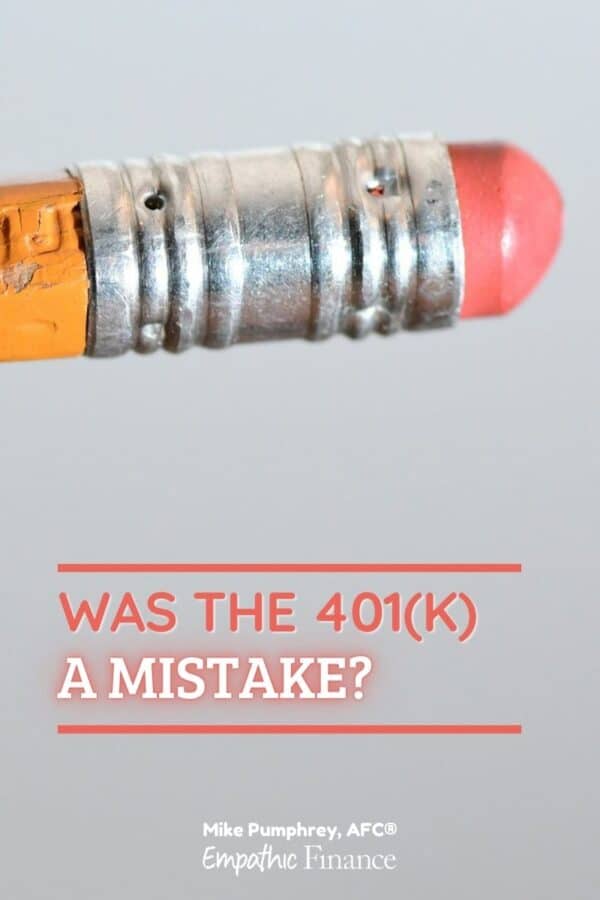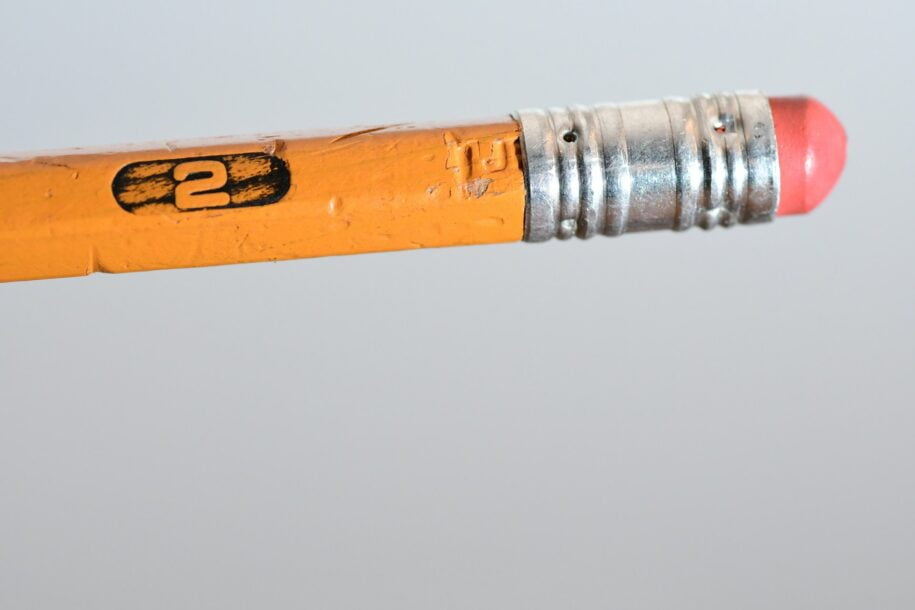The 401(k) is the best option that most people have for saving for retirement. But its introduction may have been a mistake.
Winston Churchill once said that “democracy is the worst form of government, except for all the others that have been tried.”
I’m tempted to modify that slightly to say, “the 401(k) is the worst form of investment option, except for all the others you have access to.”
Once upon a time, in the mid-20th century, people who worked in jobs had these things called “pensions”, wherein you worked at a company, and when you retired, you got a fixed income from the company until you died.
It was a great system for the worker (if not necessarily the companies who offered them) and assured people who worked hard that they wouldn’t be destitute later on in life.
Nowadays, our country’s financial motto is, if I’m not mistaken, “screw you.” Or, more generally, “you’re on your own.”
How did we get here?
Table of Contents
What is a 401(k)?
I don’t want to assume that you know what a 401(k) is.
So very simply, the 401(k) is an investment arrangement that is offered through some employers that allows you to contribute money from your pay check into an investment account. Some employers offer a “match” of contribution money, an incentive to encourage employees to contribute.
When you leave the company, you could “roll over” your account to an IRA, which is similar but self-managed. Regardless, when you reach age 59 1/2, you can withdraw money from your 401(k) without penalty.
There are some details I’m not going into here, but this is the key information.
Why a 401(k)?
I was very interested to read a recent New York Times article called “Was the 401(k) a mistake?” which talks about the origin of the retirement plan arrangement.
Back in the 1960s and 1970s, many companies, in addition to providing their employees with pensions, offered tax-deferred profit-sharing programs, which were available mostly to executives. But there was a lot of murkiness surrounding these defined-contribution plans—and a lot of concern that the I.R.S. might eventually ban them. When Congress passed the Revenue Act of 1978, it included an addition to the Internal Revenue Code that was intended to provide greater clarity about how these plans were to be structured and who could participate. The provision, which took effect in 1980, was called Section 401(k).
Apparently, the authors of the code thought it was a “minor regulatory tweak”, and not the epoch-making event that would eventually lead to the current day situation of holding more than $7 trillion in assets.
Whoops?
401(k)s are better…
I’ve long thought that the 401(k) is the most lucrative investment option that most of us have. There are a few reasons for this.
First, it has the facility to offer a “match” contribution. So, for example, if you contribute 3% of your paycheck, your employer may also contribute 3%. That is free money, and an instant 100% return on your investment (compared to the stock market’s measly 8%). You can’t beat that.
Next, there is a high contribution limit. IRAs, which you own and are more flexible than 401(k)s, have a maximum contribution limit (at the time of writing) is $7,000. Meanwhile, the 401(k) has a maximum contribution of $23,000. Both of these numbers increase if you’re over 50.
So you can put away more money in a 401(k), which means that you can earn more money.
There are other investment opportunities that don’t involve stock markets and mutual funds (such as real estate), but they are specialties and definitely not for everyone.
The 401(k) wins, hands down.
…but not as good as things used to be
The contract between a worker and its employers used to be this: “spend your working life with us, and we will take care of you in retirement.”
It used to be that an employee would be offered a pension at retirement that was calculated by one’s salary and the number of years worked, plus a percentage. So given a $5,000 average salary and 30 years of service, one might expect to received a $1,500 annual pension. (1% x $5,000 x 30 years)
There are those who look back and see this as misplaced nostalgia. In this blog post titled, “The Golden Age of Pensions: Another Fairy Tale” the author notes that there were some drawbacks:
- If you left the company, you might not get much or any pension at all
- Pensions were not always inflation-adjusted, so a good pension might not stay that way over time
I don’t disagree with these statements, but I’d also like to point out that, right now, if you don’t take steps to save for your own retirement, your own income at retirement is going to be $0. Clearly, this is worse than whatever a pension may have offered.
(Note: I’m not talking about Social Security here, because that was around too back then, so it’s irrelevant for the purposes of comparison.)
The 401(k) might be a mistake, but it’s better than nothing
I wish that there were other options for people these days, other than to try to save enough money from the income you earn so that you might be able to live comfortably later on in life. There are so many gambles and risks involved in that that it seems unfair to put all of it on you.
But, this is the world we live in. And while I would be happy to overthrow this system in favor of something better, until that happens, you need to play the game.
It isn’t impossible to save for retirement, but it requires you to make some plans (and then stick to them). You can’t stick your head in the sand and hope that it will all work out okay. It will all work out okay, but only if you make it.
If you haven’t started to figure out your future retirement, then best time to start is right now.



